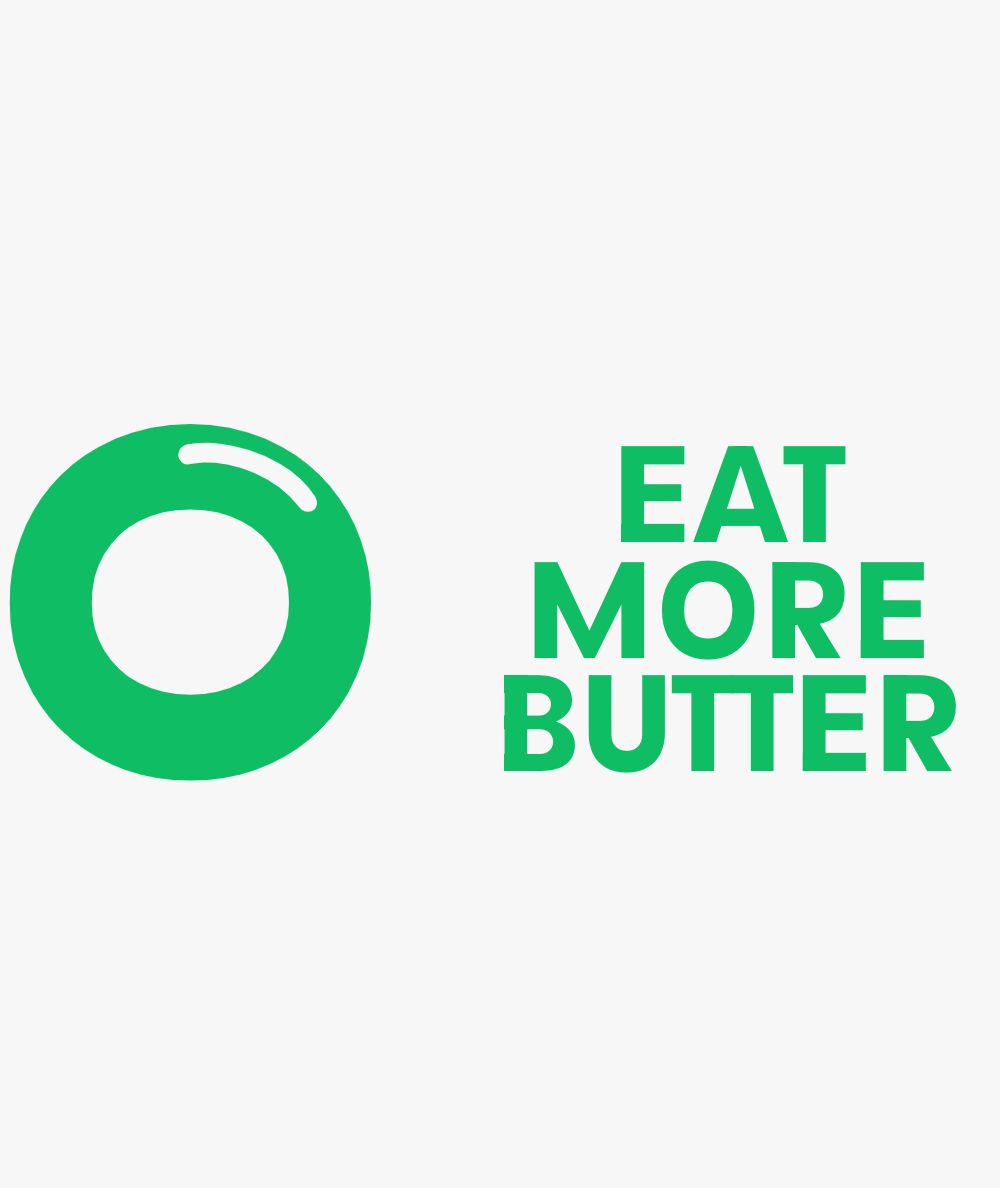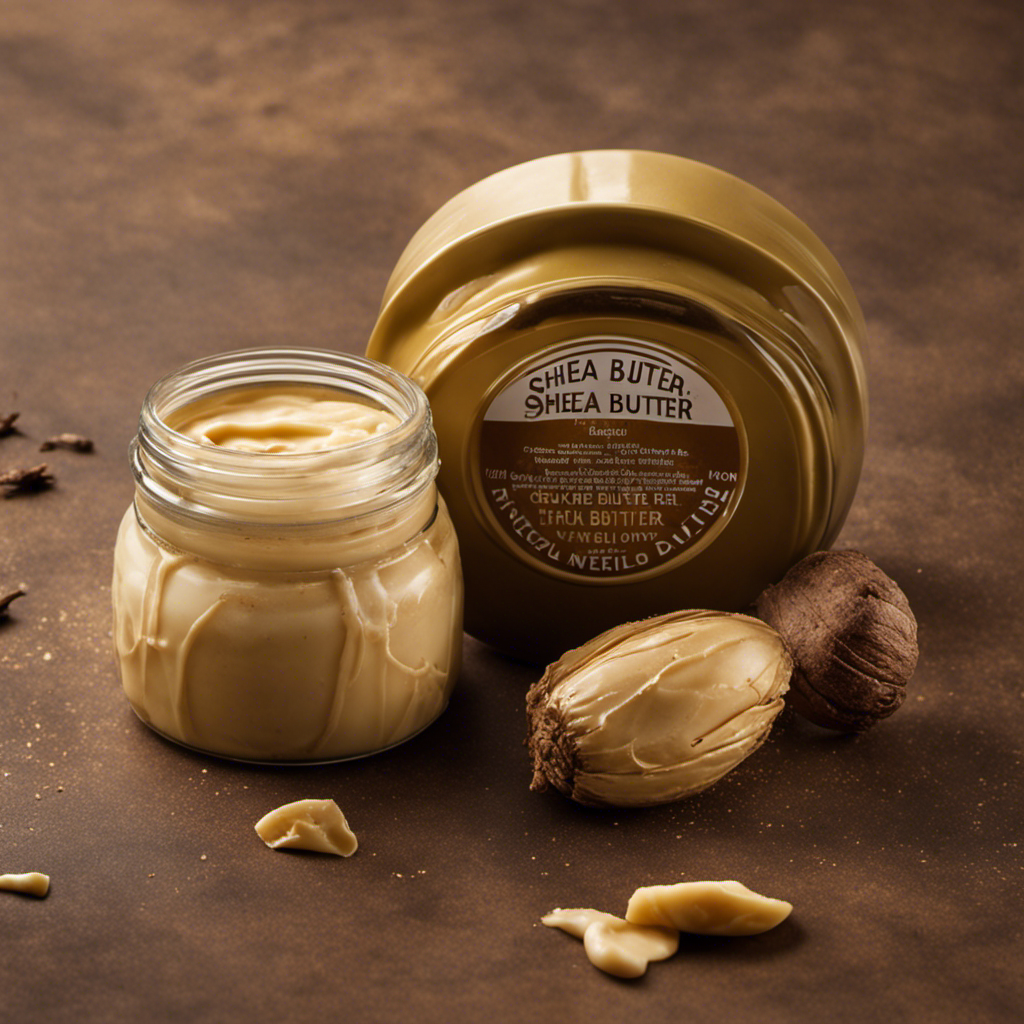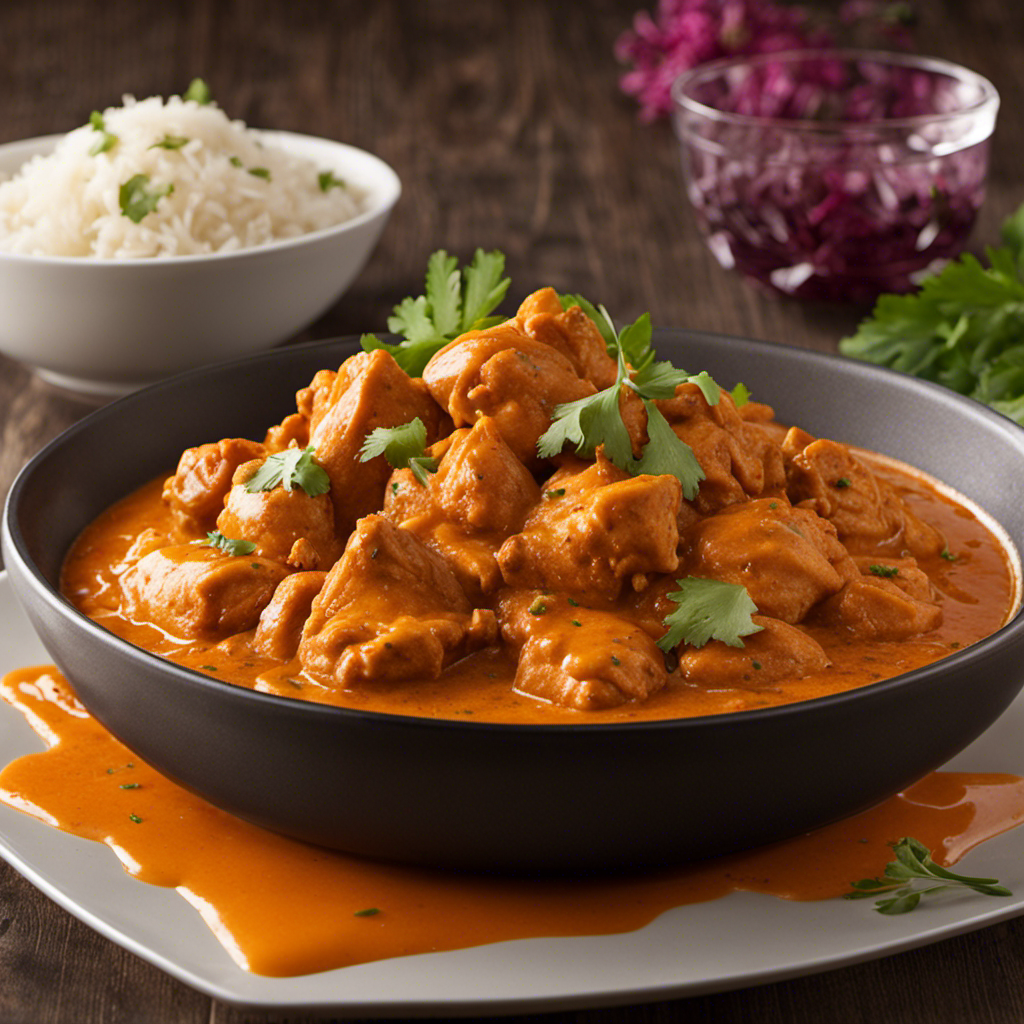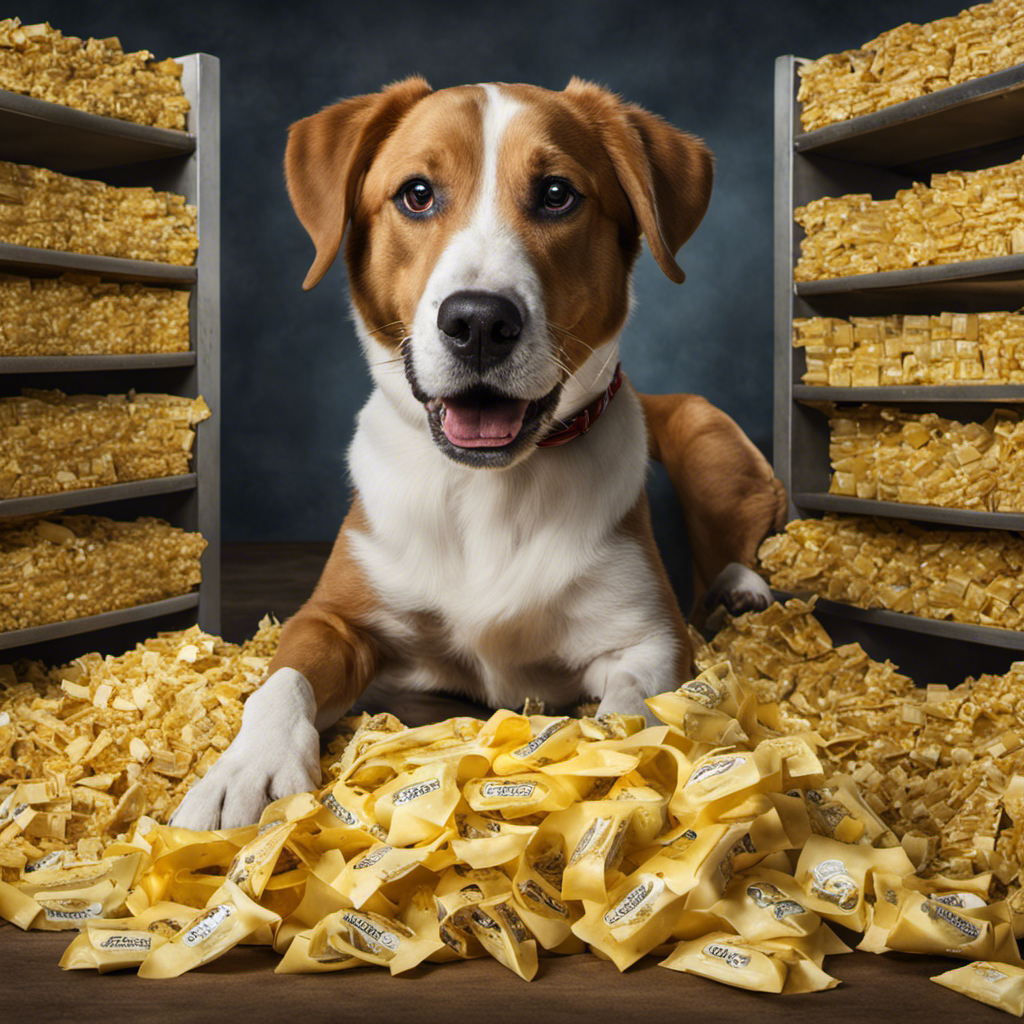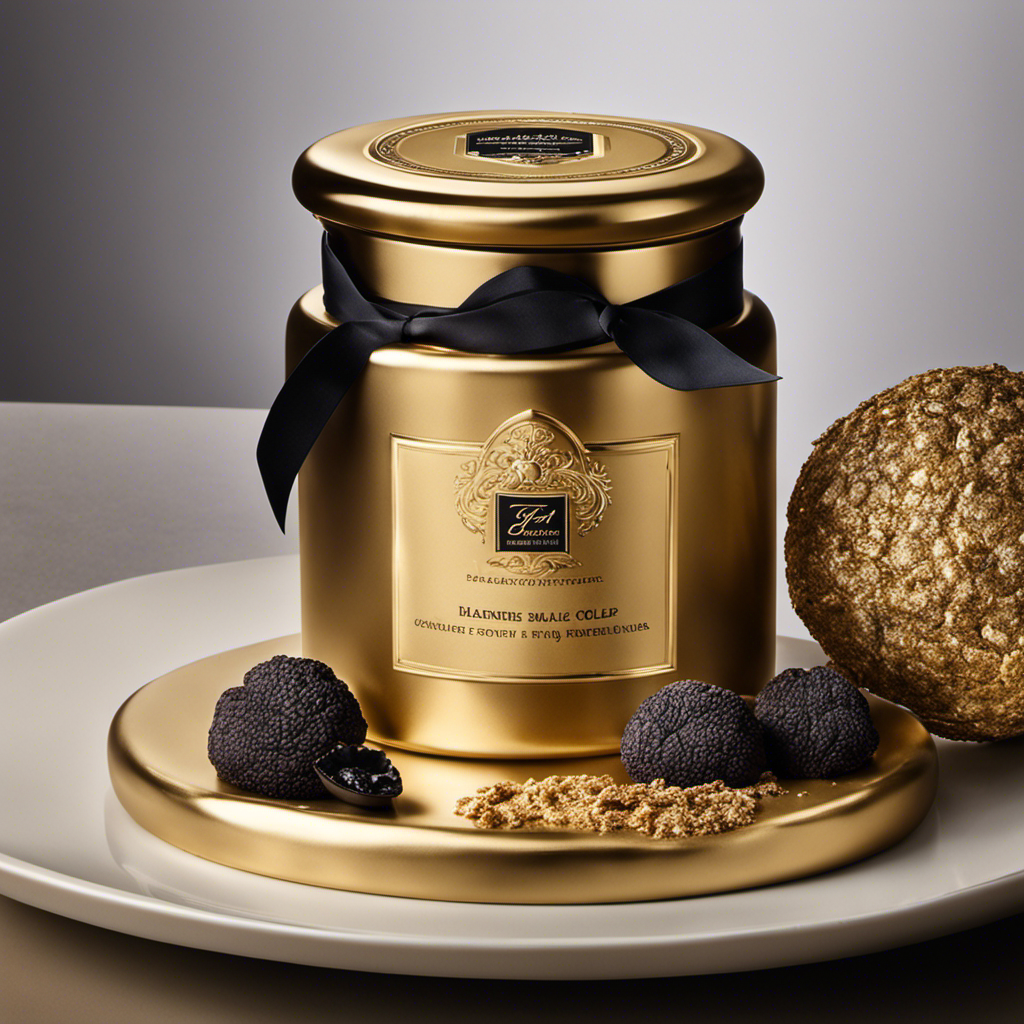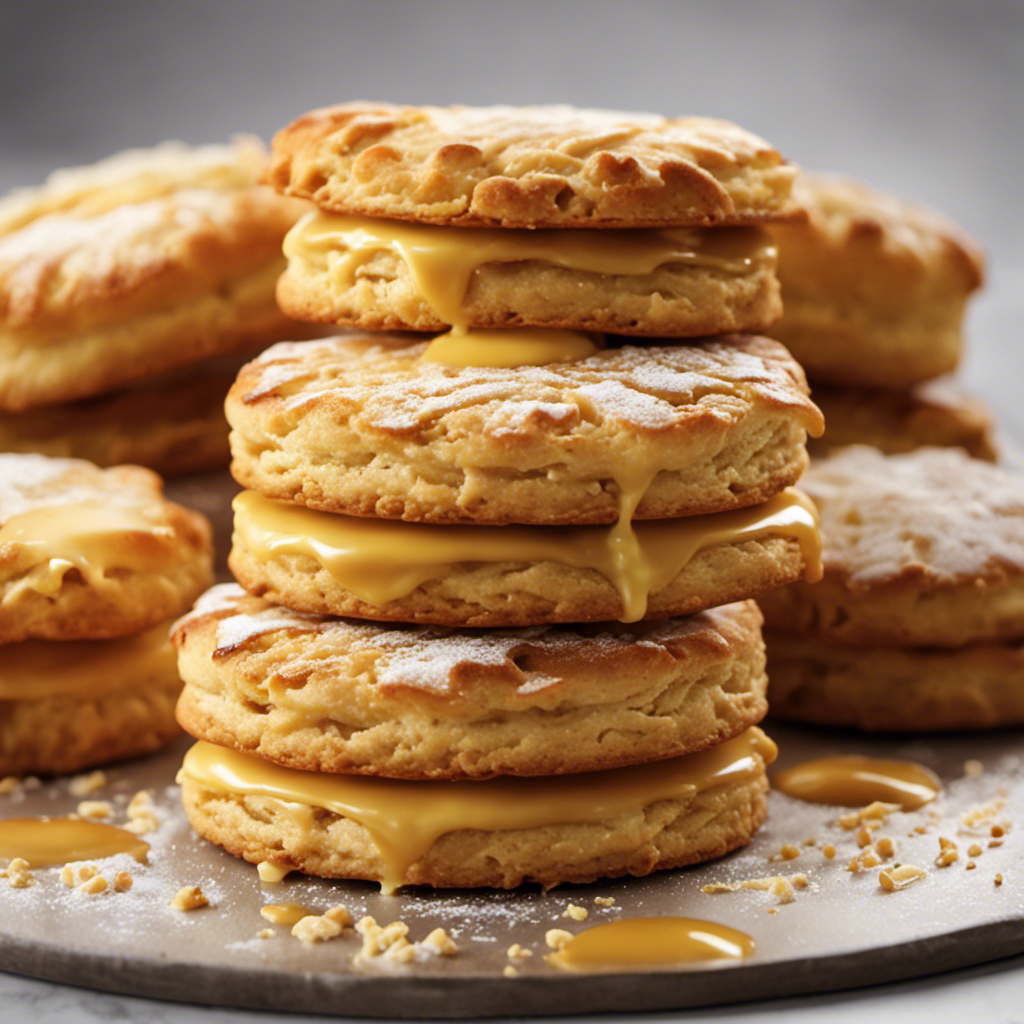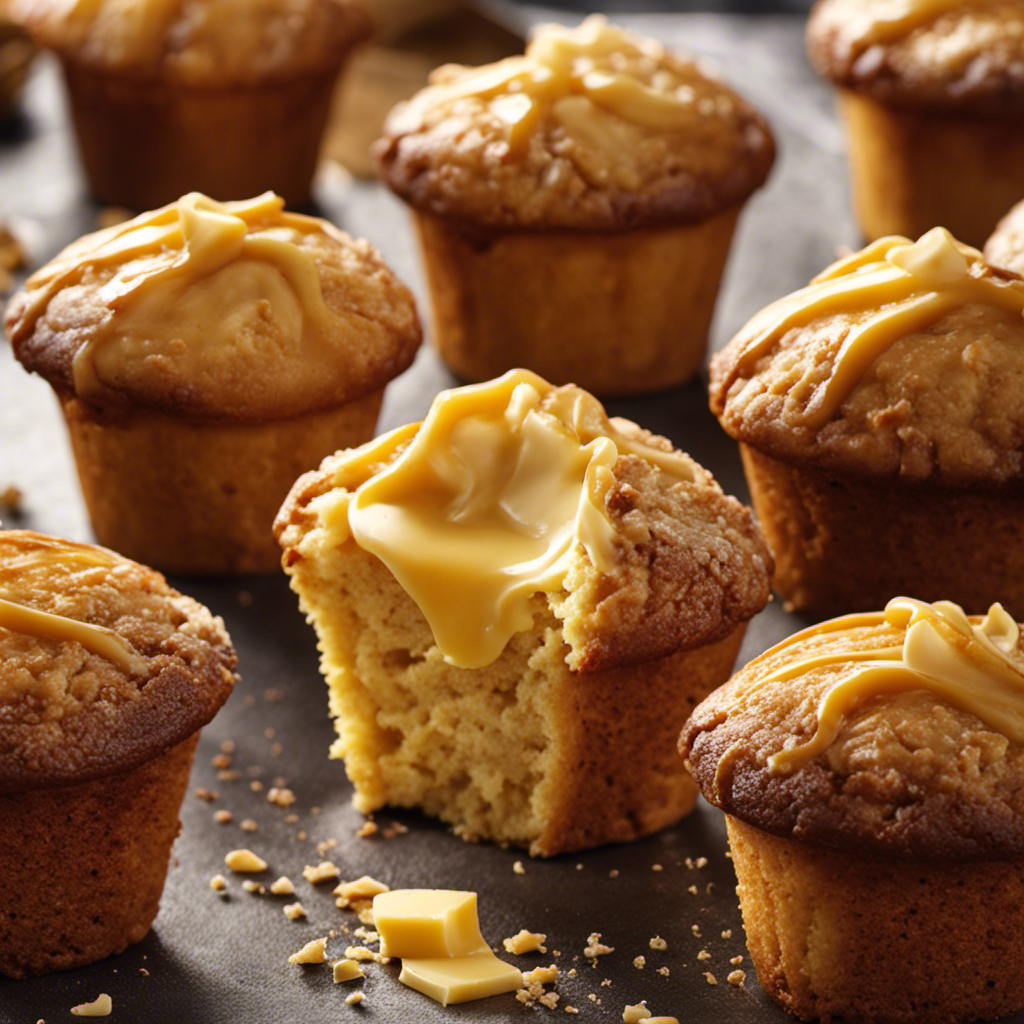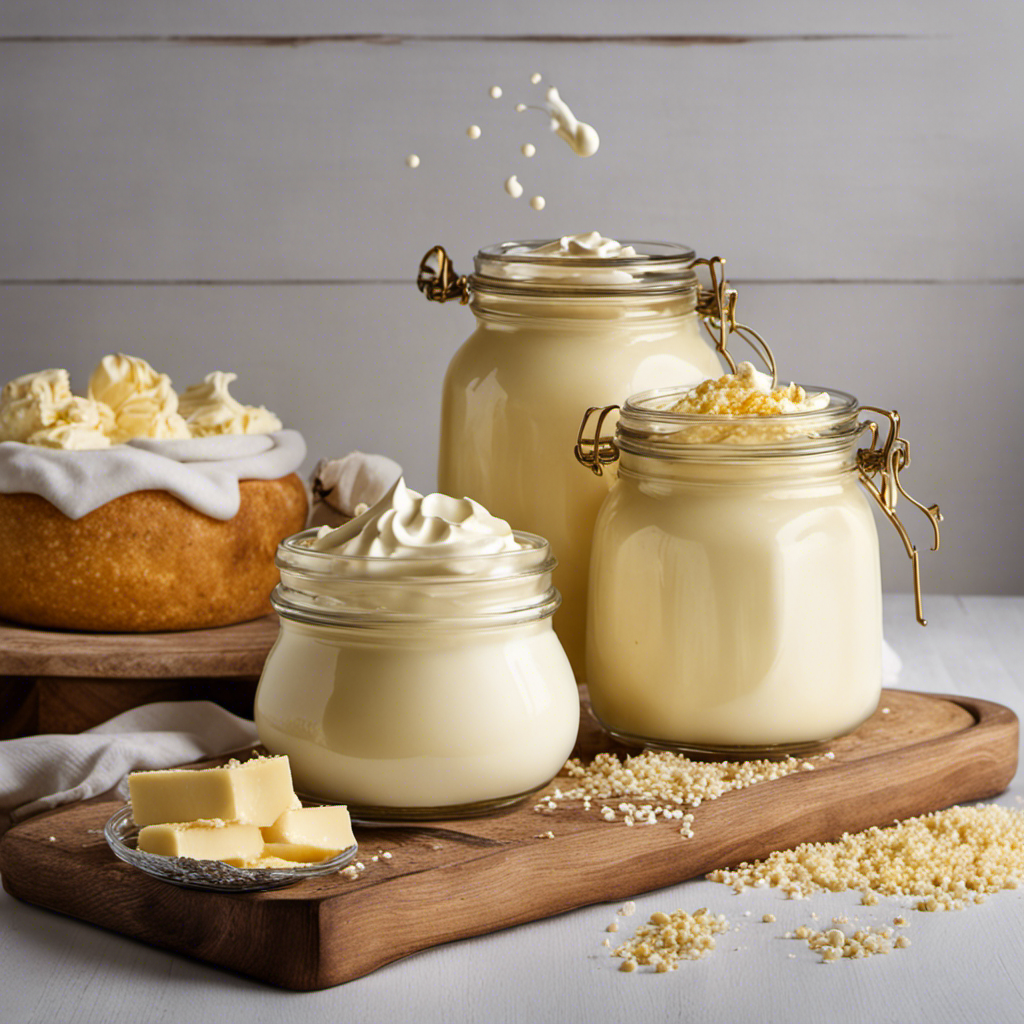Peanut Butter
Safe Peanut Butter Treats for Puppies

We have all witnessed the cute scene of a puppy enthusiastically licking a spoonful of peanut butter from the roof of its mouth. However, while we enjoy pampering our furry companions, not all peanut butter is suitable for puppies. The incorrect type could potentially lead to significant health hazards.
So, how can we make sure our pups get to enjoy this tasty treat without any harm? Let's explore the world of peanut butter for puppies and uncover the safest options to keep their tails wagging.
Key Takeaways
- Safe peanut butter for puppies should be free from xylitol, a toxic ingredient that can cause serious health issues.
- Homemade peanut butter made with just peanuts and salt is the safest option for puppies.
- Peanut butter with additives or excessive fat content can contribute to weight gain, obesity, and pancreatitis in puppies.
- Choosing peanut butter without potential choking hazards and digestive irritants is essential for the well-being of puppies.
Importance of Safe Peanut Butter for Puppies
Choosing safe peanut butter for puppies is crucial to safeguard their health and well-being. It helps prevent potential risks associated with toxic ingredients like xylitol and ensures they receive essential nutritional benefits without harmful additives.
The best peanut butter for dogs is one that contains only peanuts, or peanuts and salt, without any added sugars, artificial sweeteners, or preservatives. This ensures that puppies receive the healthy fats and protein found in peanuts without any potential dangers.
By prioritizing safe peanut butter, puppy owners can protect their furry friends from gastrointestinal issues and other health complications, promoting overall well-being. It also allows for the incorporation of this tasty treat into training and enrichment activities without worrying about potential hazards.
We understand the importance of responsible pet care and the role it plays in creating a positive and healthy feeding routine for young dogs. By selecting dog-safe peanut butter, we can ensure that our puppies receive the benefits of this delicious snack without any harmful side effects.
Hazards of Unsafe Peanut Butter for Puppies

We must be aware of the potential hazards of unsafe peanut butter for puppies. Xylitol, a sweetener found in some peanut butters, can be toxic to puppies and lead to serious health issues such as hypoglycemia and liver failure.
Additionally, the high-fat content in certain types of peanut butter can contribute to weight gain, obesity, and an increased risk of pancreatitis in puppies.
Xylitol Dangers
Xylitol presents a significant danger to puppies when present in peanut butter, as it can cause severe health issues such as hypoglycemia, liver disease, and coagulopathy, often leading to fatal consequences even with small amounts. It's crucial to be vigilant when selecting peanut butter for puppies, as xylitol is a common ingredient in some brands and can be extremely harmful to dogs. Always opt for xylitol-free peanut butter to ensure the safety of your furry friend.
This toxic substance is often found in commercially produced dog treats and peanut butter, so it's essential to carefully read the labels and choose products with natural ingredients. Homemade peanut butter with just peanuts and salt is the safest option for puppies, guaranteeing it doesn't contain any harmful additives like xylitol.
Keeping puppies safe from xylitol exposure is paramount for their well-being.
Choking Hazard
When selecting peanut butter for puppies, it's essential to carefully consider potential choking hazards and opt for varieties with simple, natural ingredients. Here are essential tips to avoid choking hazards and ensure safe peanut butter for puppies:
- Avoid Additives: Opt for peanut butter brands with natural, creamy peanuts and no added sweeteners or preservatives to minimize the risk of choking.
- Read the Label: Thoroughly read the label to ensure the peanut butter doesn't contain coarse or chunky elements that could pose a choking hazard to puppies.
- Homemade Options: Consider homemade peanut butter with minimal ingredients as it provides full control over the consistency, reducing the risk of choking for puppies.
Ensuring the peanut butter is free from potential choking hazards is crucial, as dogs love peanut butter, and providing a safe option is essential for their well-being.
Digestive Issues
To minimize the risk of digestive issues in puppies, it's crucial to carefully select peanut butter varieties free from harmful additives and excessive salt.
While peanut butter can be a delightful treat for dogs, too much of this high-fat treat can lead to stomach upset in puppies. It's important to moderate their intake to avoid digestive problems such as diarrhea and vomiting.
Opting for homemade peanut butter using a food processor with just peanuts and a pinch of salt is the safest choice for puppies. Avoiding peanut butter with added salt, chocolate, or palm oil is essential, as these ingredients can be harmful or act as a laxative for puppies.
If your puppy experiences digestive issues after consuming peanut butter, it's vital to seek veterinary care promptly.
Choosing the Best Peanut Butter for Puppies

When selecting the best peanut butter for puppies, it's important to prioritize homemade varieties with simple ingredients. Here are the key points to consider:
- Ingredients Matter: Opt for homemade peanut butter made solely from peanuts and salt. Avoid options with added sugars, artificial sweeteners, preservatives, and especially xylitol, a sweetener known to be toxic to dogs.
- Watch the Sodium Content: Choose unsalted or low-sodium peanut butter to prevent excessive salt intake in puppies. While salt is an essential nutrient, too much can be harmful, especially for young puppies.
- Consider Texture and Additives: Take into account your puppy's preference for smooth or crunchy peanut butter and select accordingly. Additionally, check the ingredients list to ensure the peanut butter doesn't contain any harmful additives that could compromise your puppy's health.
Selecting the best peanut butter for puppies is a crucial part of ensuring their overall well-being. By prioritizing homemade varieties with simple ingredients and being mindful of additives and sodium content, you can integrate this healthy fat into your puppy's diet safely and responsibly.
Safe Ingredients in Peanut Butter for Puppies

Select peanut butter for puppies that is made from just peanuts and salt, without added sugar, xylitol, or artificial sweeteners for the safest option. When choosing a peanut butter for your puppy, it's crucial to prioritize their health and well-being. Here are some safe ingredients to look for in peanut butter for puppies:
| Safe Ingredients in Peanut Butter for Puppies | ||
|---|---|---|
| Just peanuts and salt | ||
| Unsalted or low-sodium peanut butter | ||
| Homemade peanut butter or natural brands |
It's important to avoid peanut butter with xylitol, birch sugar, or chocolate, as these ingredients can be toxic to puppies. Additionally, opting for creamy or smooth peanut butter can make it easier for puppies to consume. By selecting peanut butter with these safe ingredients, you can ensure that your puppy enjoys a treat without any harmful substances. Always prioritize natural and homemade options or choose reputable brands with minimal additives to promote your puppy's safety and well-being.
Unsafe Ingredients in Peanut Butter for Puppies

When it comes to peanut butter for puppies, it's crucial to steer clear of harmful ingredients that can pose serious health risks. Avoid peanut butter with xylitol, a sugar substitute that's toxic to dogs and can lead to hypoglycemia, liver disease, and coagulopathy.
It's also important to check the label for any artificial sweeteners, added sugar, preservatives, hydrogenated vegetable oils, and high salt content, as these can all be harmful to puppies.
Harmful Ingredients to Avoid
To ensure the safety of puppies, it's imperative to meticulously scrutinize the ingredients in peanut butter, guarding against any presence of xylitol, added sugars, preservatives, or artificial sweeteners.
Here are the harmful ingredients to avoid in peanut butter for dogs:
- Xylitol: This sugar substitute is extremely toxic to dogs even in small amounts and can lead to severe health issues.
- Added Sugars: Peanut butter with added sugars can contribute to health problems like obesity and diabetes in puppies.
- Preservatives and Artificial Sweeteners: These additives can have adverse effects on a puppy's health and should be avoided.
When selecting peanut butter for dogs, it's best to choose options without these harmful ingredients to ensure the safety of your furry friend. Always check the label and opt for simple, natural ingredients to keep your dog safe and healthy.
Safe Peanut Butter Options
After carefully scrutinizing the harmful ingredients to avoid in peanut butter for puppies, it's crucial to identify safe peanut butter options that are free from these harmful additives to ensure the well-being of our furry companions.
When selecting peanut butter for puppies, pet owners should opt for natural peanut butter without added sugar, artificial sweeteners like xylitol, or chocolate, all of which are unsafe for dogs. Reading labels carefully to avoid peanut butter with xylitol or birch sugar, which are toxic to dogs, is essential.
Homemade peanut butter with simple ingredients like peanuts and salt is a safe option, as well as dog-specific peanut butter brands developed with natural, puppy-safe ingredients. It's important to avoid peanut butter with added salt, as puppies don't need it in their diet, and excessive sodium can be harmful to their health. Pet owners should also consider alternating between smooth and crunchy peanut butter based on their puppy's preferences, and avoid peanut butter with palm oil, which can act as a laxative in dogs.
These safe peanut butter options should be fed in moderation to ensure the overall health and well-being of our beloved puppies.
Risks of Certain Additives
Selecting peanut butter for puppies requires careful consideration of the potential risks associated with certain additives and ingredients to ensure the safety and well-being of our furry companions. When choosing a peanut butter for your puppy, it's crucial to be aware of the following risks of certain additives:
- Xylitol: Always check the ingredients to ensure the peanut butter doesn't contain xylitol, as it's extremely toxic to dogs and can lead to severe health issues and even death.
- Extra Sugar and Artificial Sweeteners: Avoid peanut butter with added sugar and artificial sweeteners, as these can lead to obesity, diabetes, and other health problems in dogs.
- Unsafe Additives: Be cautious of peanut butter with unsafe additives like Mono and Diglycerides, as these may lead to obesity and heart problems in dogs. Choose peanut butter with only essential ingredients, such as peanuts and salt, to ensure your puppy's safety.
Peanut Butter Allergies in Puppies

Upon introducing peanut butter into a puppy's diet, it's essential to be mindful of the potential for peanut allergies in this young canine demographic. While peanut allergies in puppies are relatively rare, they can occur. Symptoms of an allergic reaction in puppies may include itching, swelling, redness, hives, vomiting, diarrhea, or even difficulty breathing. It's crucial to observe your puppy closely when introducing peanut butter for the first time and monitor for any adverse reactions.
When selecting a peanut butter for your puppy, opt for natural peanut butter with minimal additives or consider making homemade peanut butter with just peanuts and salt. Check the ingredients to ensure it doesn't contain xylitol, chocolate, added salt, high sodium levels, or artificial sweeteners, as these can be harmful to puppies. Additionally, peanut butter with high fat content may lead to digestive issues in puppies, so moderation is key.
If you suspect that your puppy may have a peanut allergy, consult your veterinarian for guidance. They can provide an accurate diagnosis and recommend appropriate steps to ensure your puppy's safety and well-being.
How to Introduce Peanut Butter to Puppies

When introducing peanut butter to puppies, it's important to carefully select a natural, additive-free option and start with small amounts to monitor for any adverse reactions or digestive issues. Here's how to introduce peanut butter to puppies:
- Choose the Right Peanut Butter: Opt for natural peanut butter without added sugar, artificial sweeteners like xylitol, and excessive salt. Always check the label for xylitol, a sugar substitute that's toxic to dogs, and avoid peanut butter brands containing this ingredient.
- Start Small: Begin with small amounts of peanut butter and closely observe your puppy for any adverse reactions or digestive problems. It's essential to ensure that the peanut butter is well-tolerated before increasing the quantity.
- Treat Moderation: Peanut butter can be incorporated into homemade treats or used as a special, occasional reward for puppies. However, it's crucial to give it in moderation to avoid excessive calorie intake and potential weight issues.
Introducing peanut butter to puppies in a controlled and cautious manner ensures that they can enjoy this high-value treat safely. By following these steps, you can introduce peanut butter to your puppy in a manner that's both enjoyable and safe.
Monitoring Peanut Butter Consumption in Puppies
After ensuring that the peanut butter is well-tolerated in small amounts, it is important to monitor a puppy's consumption for any signs of adverse reactions or overindulgence. We recommend carefully observing your puppy for any unusual behavior or digestive issues after consuming peanut butter, especially if it contains added sugar or high levels of salt. To help you keep track, here's a simple guide for monitoring your puppy's peanut butter consumption:
| Signs of Adverse Reactions | Signs of Overindulgence |
|---|---|
| Upset stomach | Excessive drooling |
| Vomiting | Diarrhea |
| Lethargy | Hyperactivity |
| Allergic reactions | Excessive thirst |
Safe Peanut Butter Treat Ideas for Puppies

To ensure the safety and well-being of your puppy, it's essential to select natural peanut butter without xylitol or artificial sweeteners when considering treat options. When it comes to finding safe peanut butter treat ideas for puppies, there are a few key considerations to keep in mind.
Here are some safe peanut butter treat ideas for puppies:
- Choose natural peanut butter without xylitol or artificial sweeteners to ensure the safety of your puppy.
- Opt for unsalted or low-sodium peanut butter to avoid excessive salt intake in puppies.
- Use homemade peanut butter with simple ingredients to ensure a healthy treat for your puppy.
Frequently Asked Questions
What Brand of Peanut Butter Is Safe for Puppies?
We recommend using natural peanut butter for puppies, as it typically contains fewer additives and preservatives. Always check the ingredient list for xylitol, a sugar substitute that can be toxic to dogs. It's important to choose a peanut butter that's free from this ingredient to ensure the safety of your puppy.
Additionally, consulting with a veterinarian before introducing any new food to your puppy's diet is always a good practice.
Can Puppies Have Jif Peanut Butter?
We don't recommend Jif peanut butter for puppies due to potential risks associated with its ingredients. Always check the label for harmful additives like xylitol.
Homemade peanut butter with simple ingredients like peanuts and salt is the best option. Avoid varieties with added salt or sugars. Choose unsalted, low-sodium options for your puppy's safety.
Your puppy's health is our priority, so we advise caution when selecting peanut butter for them.
At What Age Can a Puppy Have Peanut Butter?
Puppies can typically have peanut butter at around 8-10 weeks of age, once they're weaned and have started eating solid food. It's important to ensure the peanut butter is free of xylitol and artificial sweeteners, as these can be harmful to dogs.
Moderation is key, as too much peanut butter can lead to digestive issues. Always consult with a veterinarian to ensure it aligns with your puppy's specific dietary needs.
What Brands of Peanut Butter Have Xylitol in Them?
We always ensure to check for xylitol in peanut butter brands before feeding it to our puppies. It's crucial to avoid brands like Go Nuts, Co., Krush Nutrition, Nuts 'n More, and P28, as they contain this harmful ingredient.
Preventive Vet's list of products containing xylitol is a helpful resource. Opt for peanut butter without xylitol or other harmful additives to keep our puppies safe.
It's best to choose minimal additive options or make our own at home.
Conclusion
In conclusion, choosing safe peanut butter for puppies is crucial for their health and well-being. By avoiding harmful ingredients like xylitol and excessive additives, we can ensure that our furry friends enjoy their treat without any risks.
Remember to consult with a veterinarian for personalized advice on the appropriate amount of peanut butter for your puppy.
Stay tuned for more tips and tricks on keeping your puppy happy and healthy!
From sneaky childhood butter licks to penning some of our most popular articles, Jamie’s journey with butter has been lifelong. His culinary background gives him a unique perspective, allowing him to craft mouthwatering articles that educate and tantalize equally. Jamie’s travel adventures revolve around finding the world’s best buttery treats when he isn’t writing.
Peanut Butter
What Makes Peanut Butter Whiskey Unique?
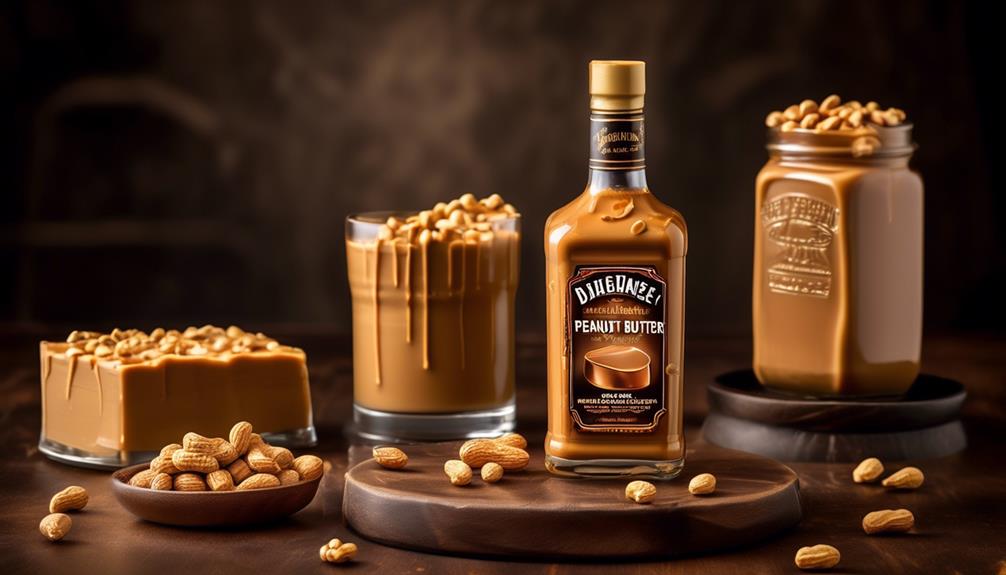
So, you're curious about peanut butter whiskey? Well, it's certainly an intriguing concept, isn't it?
The idea of blending the rich, nutty flavor of peanut butter with the warmth of whiskey is something that piques the interest of many.
But how does it actually taste? Is it a gimmicky novelty or a genuinely enjoyable spirit?
Let's explore the world of peanut butter whiskey and uncover what makes it a standout in the realm of flavored spirits.
Key Takeaways
- Peanut butter whiskey offers a unique flavor profile, combining the rich, nutty taste of peanut butter with the smooth warmth of whiskey.
- It appeals to both whiskey enthusiasts and those with a sweet tooth, offering a velvety, nutty sweetness on the palate.
- With an initial aroma reminiscent of freshly ground peanuts, it provides a familiar and comforting warmth of whiskey on the finish.
- Peanut butter whiskey has gained popularity due to its exceptional taste, appealing to those who prefer sweeter alcohol options and expanding the flavored whiskey market in the United States.
Peanut Butter Whiskey: A Unique Flavor Profile
Peanut butter whiskey offers a unique flavor profile that combines the rich, nutty taste of peanut butter with the smooth warmth of whiskey, creating a distinctive and indulgent drinking experience.
The marriage of whiskey and peanut butter creates a surprisingly delightful fusion that appeals to both whiskey enthusiasts and those with a sweet tooth. This flavored whiskey introduces a whole new dimension to the world of spirits, challenging traditional notions of what whiskey can be.
The initial aroma is reminiscent of freshly ground peanuts, followed by a velvety, nutty sweetness on the palate, which then gives way to the familiar, comforting warmth of whiskey as it goes down. The interplay of these flavors creates a truly unique drinking experience that's both familiar and novel at the same time.
The balance between the distinct nuttiness and the classic whiskey notes is what sets peanut butter whiskey apart, making it an intriguing choice for those seeking a departure from conventional whiskey flavors.
Understanding the Alcohol Content

As we continue our exploration of peanut butter whiskey's unique qualities, it's important to understand the alcohol content of this distinct spirit and how it sets it apart from traditional whiskeys.
Unlike typical American whiskey, peanut butter whiskey is known for its lower alcohol percentage, ranging from 30 to 35%, approximately 70 proof, which is notably lower than traditional whiskey's 80 proof. While this places it outside the classification of Scotch whisky according to EU standards, peanut butter whiskey doesn't make such claims.
Despite its lower alcohol by volume (ABV), the whiskey flavored with peanut butter has gained popularity due to its exceptional taste, appealing particularly to those who prefer sweeter alcohol or who previously believed they didn't enjoy whiskey.
For those interested in understanding the alcohol content of different brands, Bartendr provides a comprehensive guide, offering a roundup of the most common peanut butter whiskey brands and their alcohol percentages. This knowledge is crucial for consumers to make informed decisions before purchasing or selecting serving sizes.
Understanding the distinctive alcohol content of peanut butter whiskey is essential to fully appreciate its unique qualities and make the most of this flavorful spirit.
Serving Suggestions and Pairings

When considering serving suggestions and pairings for Skrewball Peanut Butter Whiskey, various options allow for a versatile and enjoyable drinking experience. Skrewball can be savored neat, on the rocks, or with a splash of water, enhancing its delightful aromatics and flavors.
Additionally, the whiskey can be paired with jammy cassis for a delightful enhancement of fruity flavors, or added to an old-fashioned cocktail for a nutty twist. For those seeking to experiment, mixing Skrewball with alcohols like RumChata, vanilla vodka, and caramel liqueur offers rich and complementary flavors.
Alternatively, trying it with coffee, Coca-Cola, apple cider, berry-flavored seltzer, or chocolate milk provides unique one-ingredient mixers. The versatility of Skrewball opens up new possibilities for whiskey enthusiasts to explore and enjoy creative cocktail combinations.
For further inspiration, the Skrewball website offers additional serving suggestions and cocktail recipes to elevate your next drink with this distinctive flavored whiskey. With these options, Skrewball Peanut Butter Whiskey promises an exciting and flavorful drinking experience.
Exploring Popular Peanut Butter Whiskey Brands

With the rise in popularity of flavored whiskies, a new category has emerged, introducing unique and unconventional flavors to the market. Among these, peanut butter whiskey has garnered significant attention. One of the most popular brands in this category is Skrewball Peanut Butter Whiskey, which has made a mark with its genuine peanut butter aroma and taste. This American whiskey flavored with peanut butter has gained a devoted following due to its unconventional yet enjoyable drinking experience. Created by Steven Yeng and his wife Brittany in San Diego, this flavored whiskey has experienced remarkable growth, evidenced by a staggering 1,976% increase in 2021 and its subsequent acquisition by drinks giant Pernod Ricard in 2023.
The rise of Skrewball Peanut Butter Whiskey also reflects the expanding flavored whiskey market in the United States, with major brands like Fireball, Jim Beam, and Jack Daniels venturing into this space. Skrewball, made with a base of corn and barley, infused with natural flavors, has become renowned for its refusal to provide extensive technical information, emphasizing its unique flavor profile. This versatile whiskey can be enjoyed on its own, mixed in cocktails, or paired with various flavors, offering a creative and adaptable drinking experience.
Making the Most of Skrewball Whiskey

Exploring the versatility and unique flavor profile of Skrewball Peanut Butter Whiskey allows for a delightful and adaptable drinking experience, making it a standout choice in the flavored whiskey market. Skrewball isn't only a delightful sipping whiskey but also a versatile ingredient for crafting innovative cocktails.
Here's how to make the most of Skrewball Whiskey:
- Mixology Mastery: Experiment with Skrewball in classic cocktails like Old Fashioneds or create your own unique concoctions to elevate your mixology skills.
- Decadent Desserts: Infuse your desserts with the rich, nutty flavor of Skrewball, adding a delightful twist to your culinary creations.
- Liquor Store Finds: Seek out Skrewball at your local liquor store and explore the endless possibilities it offers for your home bar.
- Unconventional Pairings: Pair Skrewball with unexpected flavors like chocolate, banana, or even chili for an adventurous tasting experience.
- Whiskey-Flavored Adventures: Take your taste buds on a journey by incorporating Skrewball into your next whiskey tasting session, and savor its unique aroma and taste.
Skrewball Peanut Butter Whiskey opens up a world of flavor possibilities, perfect for those seeking a departure from traditional whiskey experiences.
Mixing and Cocktail Recipes

Let's dive into the art of mixing and crafting delectable cocktail recipes using Skrewball Peanut Butter Whiskey, adding a unique twist to traditional libations. Skrewball Peanut Butter Whiskey offers a delightful combination of whiskey flavored with the nutty richness of peanut butter, allowing for the creation of innovative cocktail recipes that tantalize the taste buds. Experimenting with mixing Skrewball with ingredients like jammy cassis, old-fashioned mixers, or complementary spirits such as RumChata and vanilla vodka can result in rich and distinct flavors. The versatility of Skrewball enables the crafting of unique cocktails, including the Graper Manhattan or the Peanut Butter and Honey Old-Fashioned (Winnie's Cup). When mixing Skrewball, it's crucial to consider its sweetness and balance it with other flavors to create well-rounded and enjoyable cocktails. For further inspiration, Skrewball's website offers a variety of well-balanced cocktail recipes, providing guidance for those looking to explore the distinct flavor profile of peanut butter whiskey in mixed drinks.
| Mixing Ideas | Cocktail Recipes |
|---|---|
| Jammy Cassis | Graper Manhattan |
| Old-Fashioned Mixers | Peanut Butter and Honey Old-Fashioned |
| Complementary Spirits (RumChata) | – |
Where to Find Peanut Butter Whiskey

We can easily find popular brands of peanut butter whiskey at our local liquor stores, such as Skrewball, Sheep Dog, and Ole Smoky.
If we prefer the convenience of online shopping, various retailers and alcohol delivery services offer peanut butter whiskey for purchase and delivery.
Additionally, Total Wine is a great option for those seeking a diverse selection of peanut butter whiskey, while specific venues like OB Noodle House Bar 1502 in San Diego may offer the original Skrewball peanut butter whiskey.
Popular Brands Available
Peanut butter whiskey has gained popularity in recent years, with several notable brands like Skrewball, Sheep Dog, and Ole Smoky entering the flavored whiskey market and becoming readily available at liquor stores across the U.S.
- Skrewball Peanut Butter Whiskey offers a genuine peanut butter aroma and taste, providing a unique drinking experience.
- The market has seen significant growth, with major brands like Skrewball, Sheep Dog, and Ole Smoky entering the flavored whiskey market.
- You can find peanut butter whiskey at practically any liquor store in the U.S. and online through retailers like Total Wine.
- Peanut butter whiskey typically has a lower alcohol percentage, around 30-35% ABV, making it sweeter and suitable for mixed drinks.
- Skrewball Peanut Butter Whiskey can be enjoyed alone, in cocktails, or paired with complementary flavors, offering new possibilities for whiskey enthusiasts.
Online and Local Stores
With the growing availability of peanut butter whiskey at both online and local liquor stores, enthusiasts can easily explore a wide range of popular brands such as Skrewball, Sheep Dog, and Sqrrl, as well as other lesser-known options. Check out the table below to discover where you can find these delectable bottles:
| Store | Online Availability | Physical Locations |
|---|---|---|
| Total Wine | Yes | Yes |
| OB Noodle House | No | Yes (San Diego) |
| Bartendr | Yes | No |
| Local Liquor Stores | Varies | Yes |
Peanut butter whiskey, a creation often likened to the nostalgic flavors of peanut butter and jelly, is now easily accessible for both online and in-store purchases. Whether you're seeking the original Skrewball peanut butter whiskey that's a San Diego specialty or looking to explore new flavors like raspberry liqueur-infused options, the options are plentiful. Steven Yeng's innovative fusion of whiskey and peanut butter has truly revolutionized the spirit market.
Specialty Liquor Shops
Exploring specialty liquor shops allows enthusiasts to discover a diverse selection of peanut butter whiskey brands and unique variations, offering a rich opportunity for expanding one's palate and exploring the world of flavored spirits. When seeking out peanut butter-flavored whiskey, specialty liquor shops are an ideal destination due to their distinct advantages:
- They often carry a range of peanut butter whiskey brands, including popular options like Skrewball, Sheep Dog, Ole Smoky, and Skatterbrain.
- Many offer online purchasing and delivery options for convenient access.
- Some stock exclusive or limited edition peanut butter whiskey variations.
- Knowledgeable staff can offer guidance on selection, serving suggestions, and cocktail recipes.
- Visiting provides an opportunity to explore other unique flavored spirits, expanding one's palate beyond peanut butter whiskey.
Frequently Asked Questions
Does Peanut Butter Whiskey Taste Good?
Tastes vary, but we find peanut butter whiskey to be surprisingly delicious. It offers a unique blend of genuine peanut butter flavor and a hint of whiskey bite, making it an enjoyable and versatile spirit.
Its boozy lift complements creative cocktail combinations, and the subtle buttery pastry notes add complexity. While it may not suit everyone's taste, it's a milder option at around 30 to 35% alcohol, making it appealing to those who prefer sweeter alcohol or thought they didn't like whiskey.
Can You Drink Peanut Butter Whiskey Straight?
Absolutely, you can drink peanut butter whiskey straight. The rich, nutty flavor of the whiskey shines through when sipped neat, creating a smooth and indulgent experience. It's a great way to fully appreciate the unique taste profile of the spirit.
The creamy texture and hints of roasted nuts make it a delightful choice for savoring on its own.
How Is Skrewball Peanut Butter Whiskey Made?
Skrewball Peanut Butter Whiskey is made with a blend of corn and barley, infused with natural flavors, giving it an authentic peanut butter taste and aroma. Details of its production, like age statement, aren't disclosed.
It's a versatile spirit, enjoyable on its own or in cocktails, offering a fun and unique flavor profile. It pairs well with flavors like cassis and chocolate, providing a nutty twist to classic cocktails.
Is Skrewball Actually Good?
Oh, Skrewball Peanut Butter Whiskey? It's a game-changer.
The genuine peanut butter flavor and aroma set it apart, making it a delightful surprise for the palate.
The smooth, versatile nature of Skrewball makes it great for sipping on its own or getting creative with cocktails.
Its popularity and market relevance speak volumes about its quality.
Trust us, it's a winner.
Conclusion
In a world full of traditional whiskeys, peanut butter whiskey stands out as a unique and flavorful option. Its rich and smooth taste, reminiscent of a childhood favorite, offers a nostalgic and comforting experience.
Just like spreading peanut butter on warm toast, peanut butter whiskey brings warmth and comfort to any occasion. It's a symbol of creativity and innovation in the world of spirits, and a must-try for anyone looking to add a twist to their whiskey collection.
From sneaky childhood butter licks to penning some of our most popular articles, Jamie’s journey with butter has been lifelong. His culinary background gives him a unique perspective, allowing him to craft mouthwatering articles that educate and tantalize equally. Jamie’s travel adventures revolve around finding the world’s best buttery treats when he isn’t writing.
Peanut Butter
Exploring Peanut Butter Price Trends: Factors Impacting Cost

We've all experienced the sticker shock at the grocery store when we reach for our favorite jar of peanut butter, only to find that the price has increased yet again. It leaves us wondering, why is peanut butter so expensive?
Well, there are several factors at play that contribute to the price of this beloved spread. From the cost of peanuts themselves to the impact of market demand and branding, the reasons behind the price of peanut butter might surprise you.
Let's explore the various factors that make peanut butter price what it is and uncover the complexities behind this pantry staple.
Key Takeaways
- Adverse weather conditions and reduced peanut production are contributing factors to the increase in peanut butter pricing.
- High demand for peanut butter among health and fitness enthusiasts is driving up its price.
- Marketing efforts and branding strategies play a role in the higher pricing of peanut butter.
- Packaging and perceived value also impact the pricing of peanut butter.
Factors Affecting Peanut Butter Pricing
Experiencing a shortage due to sweltering temperatures and smaller crops, peanut butter pricing is being affected by various factors in the market.
The Peanut Belt states of Georgia and Texas, which usually yield substantial peanut crops, have been hit by adverse weather conditions, leading to a decrease in peanut production. This scarcity has a direct impact on peanut butter prices, as the reduced supply drives up costs for manufacturers. Companies such as J.M. Smucker Co. are already planning to raise prices in response to the smaller crop, further contributing to the increase in peanut butter pricing.
Additionally, the high demand for peanut butter, fueled by its popularity among health and fitness enthusiasts, as well as shifting consumer preferences, has played a significant role in driving up its cost. Furthermore, the marketing efforts and branding strategies employed by peanut butter companies to stand out in the competitive peanut butter market have also contributed to the higher pricing of peanut butter.
The cost of storing and handling peanuts, including additional expenses for proper storage and transportation, further influences the pricing of peanut butter.
These multiple factors combined have led to the current state of peanut butter prices, making it essential for consumers to find peanut butter that fits within their budget.
Influence of Market Demand

The high demand for peanut butter, driven by its popularity among health and fitness enthusiasts, significantly influences its market pricing. As the demand for peanut butter rises, so does its price. This increase in demand has a direct impact on the cost of peanut butter, driving it up as suppliers and producers seek to capitalize on the market trend.
This is evident in the current pricing, where peanut butter prices have risen by several cents per unit due to the surge in demand. The market demand for peanut butter not only affects its retail cost but also influences various factors contributing to its pricing, such as production, marketing, and distribution.
Additionally, the competitive nature of the market further propels the pricing of peanut butter, as brands invest heavily in marketing to differentiate themselves, passing on these costs to consumers. Moreover, limited availability in certain regions due to imports results in higher transportation and importation costs, further elevating the price of peanut butter.
Therefore, the influence of market demand plays a pivotal role in determining the price of peanut butter, affecting consumers' purchasing power and consumption patterns.
Impact of Branding on Price

When considering the impact of branding on the price of peanut butter, it's crucial to analyze the relationship between brand reputation and pricing.
Packaging plays a significant role in shaping consumers' perceived value of the product, which directly influences pricing strategies.
Additionally, the influence of advertising on consumer perception and pricing strategy can't be overlooked.
Brand Reputation and Price
Brand reputation significantly influences the pricing of peanut butter. Market-dominating brands like J.M. Smucker Co. are able to command higher prices due to their strong brand recognition and reputation. This is because their brand reputation gives consumers the perception of quality and reliability, allowing them to justify paying a premium price. The cost of marketing efforts, including sophisticated branding and organic credentials, is passed on to consumers, further impacting the price of peanut butter.
However, for consumers looking to avoid paying premium prices associated with fancy branding, store brands or budget options offer a more affordable alternative. These brands often have lower marketing costs, allowing them to offer peanut butter at a lower price point.
In addition to brand reputation, there are other factors that contribute to the overall price of peanut butter. The cost of ensuring peanuts are stored correctly, transportation and importation costs, and the manufacturing process all play a role in determining the final price. These costs are influenced by brand reputation and the associated production and handling costs.
Even within leading brands like Jif and Skippy, there are different pricing strategies. Wholesale clubs, for example, often offer competitive prices for both generic and name brand peanut butter. This illustrates the impact of brand reputation on pricing within the market.
Packaging and Perceived Value
Analyzing the impact of packaging on perceived value reveals the intricate relationship between branding and pricing in the peanut butter market.
- Packaging creates a visual and psychological connection, influencing consumers' perception of quality and value.
- Branding and packaging convey a story and lifestyle, enticing consumers to associate higher value with certain brands.
- Innovative and sustainable packaging designs can elevate the perceived value, justifying premium pricing for peanut butter products.
The packaging of peanut butter plays a pivotal role in shaping consumers' perception of its value. It serves as a tangible representation of the brand and its quality, influencing purchasing decisions. As consumers, we're drawn to packaging that communicates quality and aligns with our values, ultimately impacting the price we're willing to pay for peanut butter.
Advertising and Pricing Strategy
The impact of packaging on perceived value in the peanut butter market underscores the significance of advertising and branding efforts in shaping pricing strategies for different brands.
As companies invest in marketing to differentiate themselves and appeal to health-conscious consumers, these efforts significantly influence the pricing of peanut butter. The costs associated with marketing and branding are ultimately passed on to the buyers, contributing to the overall price of peanut butter. This phenomenon makes store brands or budget options an attractive cost-saving alternative for price-conscious consumers.
Additionally, the effective communication of product benefits and unique selling propositions through advertising can justify premium pricing for certain brands. Therefore, advertising and branding play a pivotal role in determining the perceived value of peanut butter, enabling companies to implement diverse pricing strategies to cater to varying consumer segments and preferences.
Cost of Peanuts Storage

Proper storage and transportation of peanuts significantly impact their quality and directly influence the pricing of peanut butter. The cost of ensuring peanuts are stored correctly is reflected in the pricing of peanut butter. Careful handling and storage are necessary to maintain the quality of peanuts. The high fat content of peanuts makes them difficult to store, requiring specific conditions to prevent spoilage.
The proper storage and transportation of peanuts incur additional costs for manufacturers. Incorrectly stored peanuts develop a chemical-like smell and taste bitter or sour, making them unsuitable for peanut butter production. These factors emphasize the importance of investing in adequate storage facilities and transportation methods to maintain the integrity of the peanuts used in peanut butter production.
The cost of peanuts storage is a crucial aspect that directly impacts the overall price of peanut butter. Manufacturers must bear the expenses associated with maintaining optimal storage conditions to ensure the peanuts' quality, which inevitably influences the final pricing of peanut butter for consumers.
Import Challenges for Peanut Butter

Importing peanut butter from countries with limited peanut cultivation presents significant challenges, impacting transportation costs and availability. Limited peanut cultivation in certain countries leads to a heavy reliance on imports, resulting in increased transportation and importation costs. Additionally, importing peanut butter from countries with different growing conditions can lead to higher prices due to limited availability and increased demand. This directly affects the price and accessibility of peanut butter in the United States, making it challenging for some regions to obtain at a reasonable cost.
Expats living abroad often face difficulties in obtaining peanut butter due to limited availability and higher costs of imported peanut butter. As a result, they often rely on friends and family to bring peanut butter when visiting. The availability and demand for peanut butter in different countries further complicate the import challenges, ultimately leading to increased prices for consumers. The additional expenses incurred in the transportation and importation processes contribute to the overall price of peanut butter in the market.
Manufacturing Process Costs

The manufacturing process costs of peanut butter are a crucial aspect of pricing analysis.
Ingredient sourcing and packaging expenses play a significant role in determining the overall manufacturing costs.
We must carefully examine these specific points to understand the impact on the pricing of peanut butter.
Ingredient Sourcing
Investing in equipment, research, and development to meet consumer demands for quality and variety adds to the manufacturing process costs of peanut butter. The sourcing of raw nuts like peanuts significantly impacts these costs. Factors such as crop yield, careful handling, and storage needs influence the overall manufacturing expenses.
Additionally, the cost of transporting and importing peanuts for peanut butter production contributes to the total manufacturing process costs. Furthermore, the cost of raw materials and production processes varies across different nut butters, with factors like the cost of growing and processing peanuts versus almonds contributing to overall price differences.
Understanding these intricacies illuminates the multifaceted nature of peanut butter and nut butter pricing, providing insight into the complexities involved in the ingredient sourcing process.
Packaging Expenses
Careful consideration of packaging expenses is crucial for manufacturers to maintain product quality and appeal to consumers while managing production costs.
Packaging expenses encompass the costs associated with designing, manufacturing, and labeling the containers used to store and sell products like peanut butter and jelly. These costs include materials such as glass, plastic, or metal, as well as the labor and machinery needed for the packaging process.
Additionally, packaging expenses involve the development of attractive and informative labels to appeal to consumers and comply with regulations.
Efficient and sustainable packaging solutions can help minimize expenses and reduce environmental impact, benefitting both the manufacturer and the consumer.
When it comes to a jar of peanut butter or homemade peanut butter, smart packaging decisions can significantly impact the overall cost and consumer perception.
Homemade Vs. Store-Bought Peanut Butter

When considering the decision between homemade and store-bought peanut butter, consumers can weigh the advantages and disadvantages of each option to make an informed choice.
Homemade peanut butter allows for control over ingredients and customization, offering a healthier alternative to store-bought options that may contain added sugars and preservatives. On the other hand, store-bought peanut butter provides convenience and a variety of flavors, catering to diverse consumer preferences.
Additionally, homemade peanut butter can be less expensive, especially when using bulk nuts, compared to premium store-bought options, contributing to cost savings without compromising quality.
In weighing the decision between homemade and store-bought peanut butter, consumers should consider their priorities, whether it's the desire for healthier ingredients, flavor variety, or cost-effectiveness. These factors can guide individuals towards the option that best aligns with their preferences and values.
Frequently Asked Questions
Why Is Peanut Butter so Expensive Now?
Peanut butter is so expensive now due to a combination of factors.
Sweltering temperatures and drought have led to a decreased peanut crop, causing a shortage.
The dominant market player plans to raise prices by 30% due to the shortage.
High demand, sophisticated branding, and marketing efforts also contribute to the increased cost.
Additionally, the cost of storing, handling peanuts, and the manufacturing process adds to the overall price.
Why Is There a Peanut Butter Shortage?
The peanut butter shortage stems from a 13% smaller peanut crop caused by extreme heat and parched soil in the Peanut Belt states.
This shortage has prompted major players like J.M. Smucker Co. to forecast a 30% price increase in November.
High demand, especially from health and fitness enthusiasts, has further driven up costs.
Additionally, the branding and marketing efforts of companies, as well as the costs of storing and handling peanuts, all contribute to the pricing of peanut butter.
Why Are Peanuts so Expensive 2023?
Peanuts are expensive in 2023 due to a combination of factors. Crop damage from extreme weather conditions has reduced harvest sizes, leading to a scarcity of peanuts. Major companies dominating the market have driven up prices. High demand, influenced by popularity and health benefits, has also played a role.
Additionally, costs related to branding, marketing, and production processes contribute to the expensive nature of peanuts.
Why Is Jif so Expensive?
We believe Jif is expensive due to multiple factors.
The 13% decrease in this year's peanut crop, sweltering temperatures, and parched soil in Peanut Belt states like Georgia and Texas have impacted production.
J.M. Smucker Co., dominating 45% of the peanut butter market, expects to raise prices by 30% in November.
Additionally, high demand, marketing efforts, and the cost of storing and handling peanuts contribute to the overall expense of Jif.
Conclusion
In conclusion, the price of peanut butter is influenced by a complex interplay of factors, much like a symphony orchestra with each instrument playing a crucial role in creating the final masterpiece.
From the cost of peanuts to the impact of market demand and branding, every component contributes to the overall price.
Understanding these factors can help consumers make informed decisions and appreciate the value behind their favorite spread.
From sneaky childhood butter licks to penning some of our most popular articles, Jamie’s journey with butter has been lifelong. His culinary background gives him a unique perspective, allowing him to craft mouthwatering articles that educate and tantalize equally. Jamie’s travel adventures revolve around finding the world’s best buttery treats when he isn’t writing.
Peanut Butter
Why Is Peanut Butter a Good Source of Protein?

Peanut butter, like a reliable friend, has always been a staple in our pantry. There's something about its creamy texture and nutty flavor that makes it a versatile and beloved addition to many dishes.
But what exactly makes peanut butter so good? Well, there are several reasons why this humble spread has earned its reputation as a nutritional powerhouse. From its protein content to its heart-healthy fats, there's a lot to unpack when it comes to the benefits of peanut butter.
Key Takeaways
- Peanut butter is a nutritious spread that offers a wide range of health benefits.
- It is a good source of protein, essential amino acids, healthy fats, and essential nutrients like vitamin E, magnesium, and potassium.
- Peanut butter contributes to daily fiber intake, aids in digestion, and promotes a feeling of fullness.
- It contains antioxidants that protect cells from oxidative stress and may lower the risk of cancer and heart disease.
Nutritional Benefits
Peanut butter offers a plethora of nutritional benefits, making it a valuable addition to a balanced diet. When considering the health aspect, it's important to select peanut butter brands that prioritize natural ingredients without added sugars or hydrogenated oils.
The inclusion of peanuts, a heart-healthy nut, provides a good source of protein and essential amino acids crucial for muscle repair and growth. Moreover, the healthy fats present in peanut butter, such as monounsaturated and polyunsaturated fats, play a pivotal role in supporting heart health and lowering bad cholesterol levels, ultimately reducing the risk of heart disease.
Additionally, the abundance of essential nutrients like vitamin E, magnesium, and potassium in peanut butter contributes to overall health and wellness. The high fiber content not only aids in digestion but also promotes a feeling of fullness, which can contribute to weight management. However, it's vital to consume peanut butter in moderate amounts due to its calorie density.
Healthful Fats and Proteins

Rich in essential fatty acids, antioxidants, and monounsaturated fats, peanut butter is a valuable source of healthful nutrients that contribute to heart health and overall well-being. The fats in peanut butter include both omega-6 fatty acids and monounsaturated fats, which are beneficial for heart health. While it's high in fat, the majority is monounsaturated fat, which can help reduce the risk of heart disease when consumed as part of a balanced diet.
Additionally, the protein content in peanut butter is substantial, making it a satisfying and filling option. Protein not only aids in muscle repair and growth but can also help control blood sugar levels and appetite. By choosing natural or organic peanut butter without added sugars and trans fats, individuals can maximize the health benefits, including essential vitamins and minerals.
Incorporating peanut butter into meals and snacks can offer a delicious way to consume healthful fats and protein, contributing to overall well-being.
Vitamin and Mineral Content

Peanut butter is a nutrient-rich spread that offers essential vitamins and minerals.
A 2-tablespoon serving provides approximately 2 mg of vitamin E, 49 mg of magnesium, and 208 mg of potassium.
Additionally, it contains niacin and small amounts of zinc, contributing to energy production, metabolism, immune function, and wound healing.
Nutrient-Rich Spread
Containing a wealth of essential vitamins and minerals such as vitamin E, magnesium, and potassium, peanut butter is a nutrient-rich spread that contributes to a balanced diet and supports overall wellness.
Peanut butter is a good source of protein, essential amino acids, and healthy fats, making it beneficial for muscle repair, immune system function, and weight loss.
The heart-healthy monounsaturated and omega-6 fatty acids in peanut butter may lower the risk of developing heart disease.
Moreover, the vitamin E content in peanut butter supports skin and hair health, while the magnesium and potassium help regulate blood sugar levels.
Incorporating natural or organic peanut butter into a balanced diet can provide these essential nutrients and promote overall health.
It's important to be mindful of portion sizes and choose natural varieties to maximize the nutrient benefits of peanut butter.
Essential Vitamins and Minerals
Packed with a plethora of vital nutrients, peanut butter serves as a substantial source of essential vitamins and minerals necessary for maintaining overall health and well-being. It contains protein, fiber, niacin, magnesium, phosphorous, zinc, and vitamin B-6, contributing to a healthful diet. These nutrients support nerve function, insulin sensitivity, and aid in maintaining a healthy weight.
The nutrient profile of peanut butter also includes monounsaturated and polyunsaturated fatty acids, which can reduce the risk of heart disease by lowering bad cholesterol levels. Additionally, the rich antioxidants and essential fatty acids in peanut butter contribute to cell repair, skin health, and protection against oxidative stress.
Despite these benefits, it's crucial to consume peanut butter in moderation due to its high calorie, saturated fat, and sodium content.
Dietary Fiber Contribution

With approximately 2 grams of dietary fiber in a 2-tablespoon serving, peanut butter is a significant contributor to daily fiber intake, promoting digestive health and supporting overall well-being. Peanut butter's high fiber content aids in digestion, promotes a feeling of fullness, and supports the growth of healthy gut bacteria. It helps manage blood sugar levels and lower cholesterol, potentially lowering the risk of heart disease. Including peanut butter in the diet not only adds to the daily fiber intake but also contributes to overall digestive health and regularity. Choosing natural or organic peanut butter options can maximize the dietary fiber contribution while avoiding added sugars and unhealthy fats.
- Peanut butter's high fiber content aids in digestion and promotes a feeling of fullness.
- It supports the growth of healthy gut bacteria, contributing to overall digestive health.
- The dietary fiber in peanut butter can help manage blood sugar levels and lower cholesterol, potentially lowering the risk of heart disease.
- Choosing natural or organic peanut butter options maximizes the dietary fiber contribution while avoiding added sugars and unhealthy fats.
Antioxidant Properties

The antioxidant properties of peanut butter are worth exploring, as they play a significant role in promoting overall health.
The presence of antioxidants, such as vitamin E and resveratrol, in peanut butter may contribute to reducing the risk of chronic diseases.
These antioxidants help protect the body's cells from free radical damage, offering potential benefits in disease prevention and free radical defense.
Health Benefits
Containing antioxidants such as vitamin E and p-coumaric acid, peanut butter plays a significant role in combating oxidative stress and protecting cells from damage, thereby contributing to reducing the risk of chronic diseases such as heart disease and certain types of cancer.
Regular consumption of peanut butter is a good option for promoting overall health, as its antioxidant properties support the body's defense against free radicals and inflammation. This may help reduce your risk of heart disease and certain types of cancer.
Additionally, a high intake of peanut butter may contribute to a lower risk of chronic diseases. It's important to note that while peanut butter is healthy due to its antioxidant content, it's high in calories, so moderation is key.
Always consult a healthcare professional for diagnosis or treatment.
Disease Prevention
Taking into account its potent antioxidant properties, peanut butter plays a crucial role in preventing diseases and promoting overall health.
Studies have shown that peanut butter, with its high antioxidant content, can help prevent oxidative stress and reduce the risk of chronic diseases. The antioxidants in peanut butter contribute to maintaining good cholesterol levels, blood sugar levels, and blood pressure, making individuals less likely to develop heart disease.
Furthermore, the presence of antioxidants in peanut butter may lower the risk of cancer and promote cell repair. Incorporating peanut butter into a balanced diet can help protect against oxidative damage and reduce the risk of developing type 2 diabetes.
Free Radical Defense
Boasting potent antioxidant properties, peanut butter actively defends the body against free radicals, mitigating the risk of cellular damage and chronic diseases. The antioxidants in peanut butter, such as vitamin E and flavonoids, help neutralize free radicals, protecting cells and tissues from oxidative stress. Consuming peanut butter with antioxidant properties may contribute to lower risks of cancer, heart disease, and other chronic conditions by combating free radicals.
Additionally, these antioxidants promote cell repair and enhance the body's defense against oxidative damage, ultimately boosting overall health and well-being. Including peanut butter with antioxidant properties in our diet supports the body's natural defense system, contributing to long-term health.
With its high content of oleic acid and vitamin B, peanuts play a crucial role in safeguarding our health and well-being.
Satiety and Energy Boost

Peanut butter provides a sustained feeling of fullness and a reliable source of energy due to its high protein and healthy fat content. The protein in peanut butter helps to regulate appetite and increase satiety, which can aid in weight management. Additionally, the healthy fats in peanut butter provide a slow-burning source of energy, which can help maintain stable blood sugar levels and prevent energy crashes. This combination of protein and healthy fats makes peanut butter an excellent choice for a satisfying snack or addition to meals.
In terms of health, peanut butter is relatively high in calories, so portion control is important, especially for those watching their calorie intake. However, the fats in peanut butter are predominantly heart-healthy monounsaturated and polyunsaturated fats, which can have a positive impact on cholesterol levels and overall heart health. Peanuts, the main ingredient in peanut butter, also contain various nutrients and antioxidants that contribute to its health benefits.
It's important to note that while peanut butter has numerous health benefits, it's crucial to choose natural varieties without added sugars and excessive salt to minimize potential risks associated with processed foods.
Frequently Asked Questions
What Are the Benefits of Eating Peanut Butter?
Eating peanut butter offers numerous benefits.
It's a rich protein source, aiding muscle repair and growth.
The healthy fats support heart health, lowering the risk of heart disease.
Packed with vitamins and minerals, it contributes to overall well-being.
Its protein-fiber combo aids weight management and appetite control.
Moreover, it helps with blood sugar management, reducing the risk of type 2 diabetes.
Including it in a balanced diet promotes overall health and wellness.
Why Is Peanut Butter so Good?
Peanut butter is good due to its rich protein, healthy fats, and essential nutrients. It's beneficial for heart health, appetite control, and weight management.
Additionally, its versatility makes it a convenient, nutritious option for various recipes and snacks.
When opting for peanut butter, choosing natural or organic varieties without added sugars, oils, or trans fats maximizes its health benefits.
Is Peanut Butter OK to Eat Everyday?
Oh, peanut butter? Absolutely! We make it a daily staple. Packed with protein, healthy fats, and essential nutrients, it's a great addition to our diet.
Research suggests it can improve heart health, regulate blood sugar, and reduce the risk of certain diseases. Just be mindful of portion sizes and opt for natural, sugar-free options.
It's all about balance and moderation.
Why Is a Spoonful of Peanut Butter Good for You?
A spoonful of peanut butter is good for us because it provides a healthy dose of protein, fiber, and essential nutrients like magnesium, phosphorus, and vitamin B-6. This combination supports heart health, helps with appetite control, and can aid in weight management.
Additionally, peanut butter can help regulate blood sugar levels, making it a suitable option for individuals with type 2 diabetes. Its versatility also allows for easy incorporation into various dishes and snacks.
Conclusion
In conclusion, peanut butter offers a wealth of nutritional benefits. It is rich in protein, which is essential for muscle repair and growth. Peanut butter also contains heart-healthy monounsaturated fats. These fats can help improve cholesterol levels and lower the risk of heart disease.
Additionally, peanut butter is a good source of fiber, vitamins, and minerals. The fiber helps with digestion and can promote a feeling of fullness. The vitamins and minerals in peanut butter contribute to overall health and well-being.
Another benefit of peanut butter is its antioxidant properties. Antioxidants help protect the body against damage from harmful free radicals. This added protection can have a positive impact on long-term health.
It is important to note that while peanut butter is nutritious, it should be consumed in moderation. It is high in calories, so excessive consumption can lead to weight gain. However, incorporating peanut butter into a balanced diet can provide a satisfying and energy-boosting addition.
So, next time you enjoy that creamy peanut butter on your toast, remember the array of benefits it brings to your health.
From sneaky childhood butter licks to penning some of our most popular articles, Jamie’s journey with butter has been lifelong. His culinary background gives him a unique perspective, allowing him to craft mouthwatering articles that educate and tantalize equally. Jamie’s travel adventures revolve around finding the world’s best buttery treats when he isn’t writing.
-
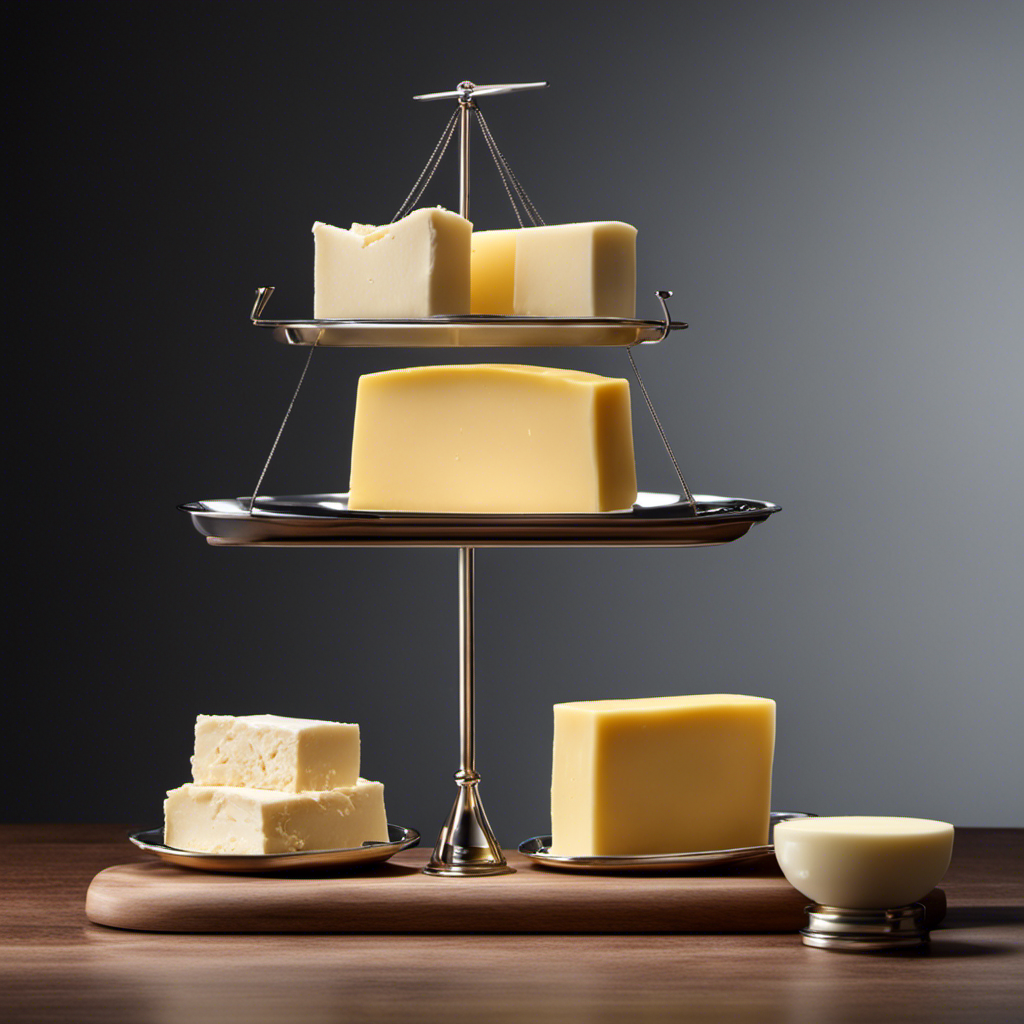
 Recipes & Culinary Uses2 months ago
Recipes & Culinary Uses2 months agoHow Many Sticks of Butter Equals a Pound: A Handy Guide
-

 Shopping Guides1 month ago
Shopping Guides1 month agoWhere to Buy Raw Butter
-

 Recipes & Culinary Uses4 weeks ago
Recipes & Culinary Uses4 weeks agoMake Homemade Butter from Milk at Home
-
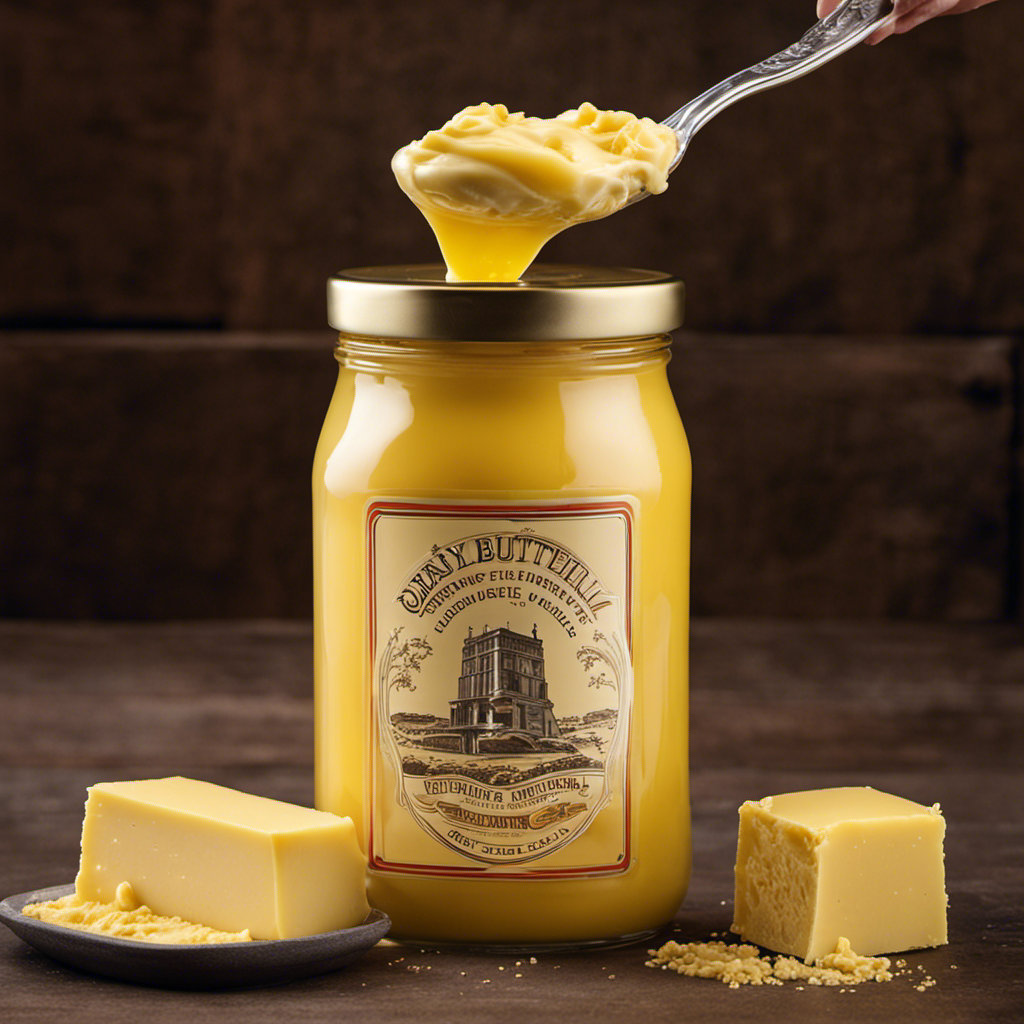
 Recipes & Culinary Uses4 weeks ago
Recipes & Culinary Uses4 weeks agoMake Creamy Butter From Buttermilk
-
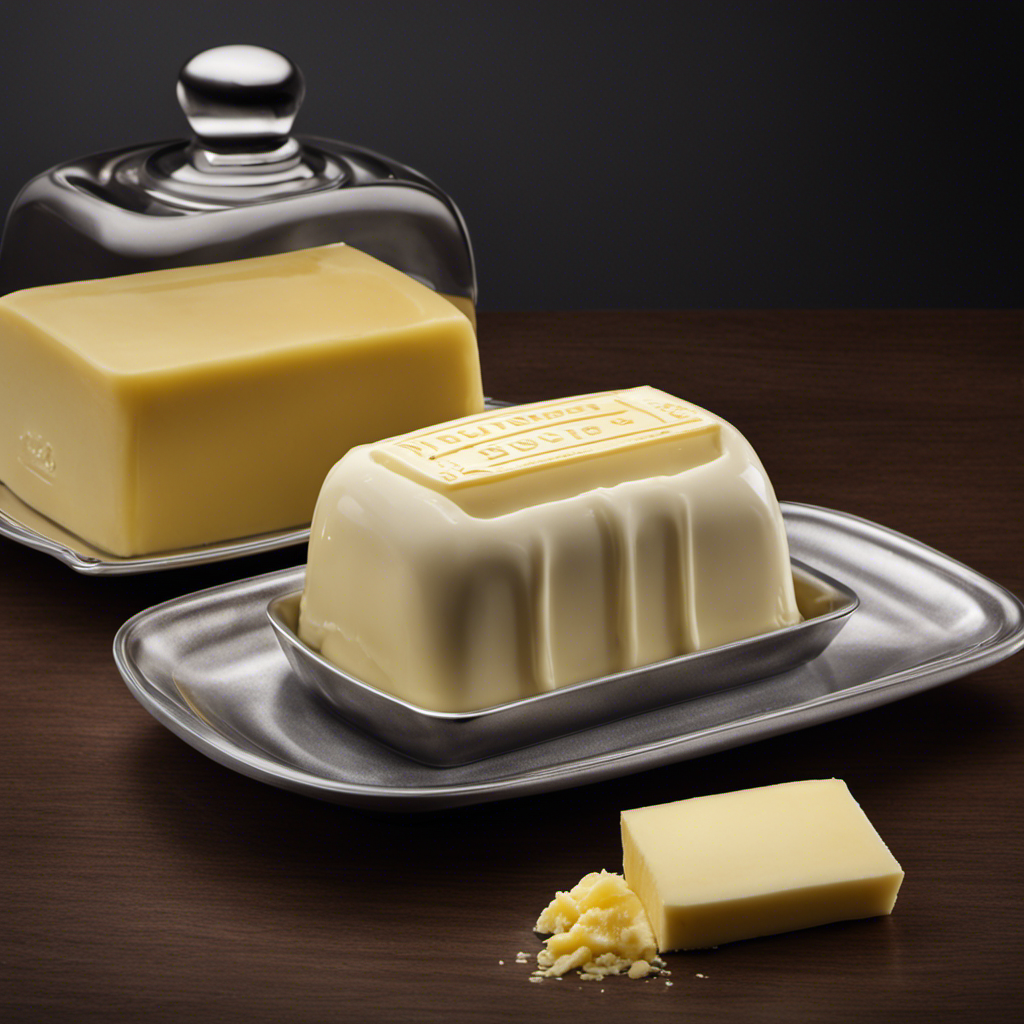
 Butter Tips and Tricks3 months ago
Butter Tips and Tricks3 months agoHow Long Can You Use Butter After the Expiration Date?
-
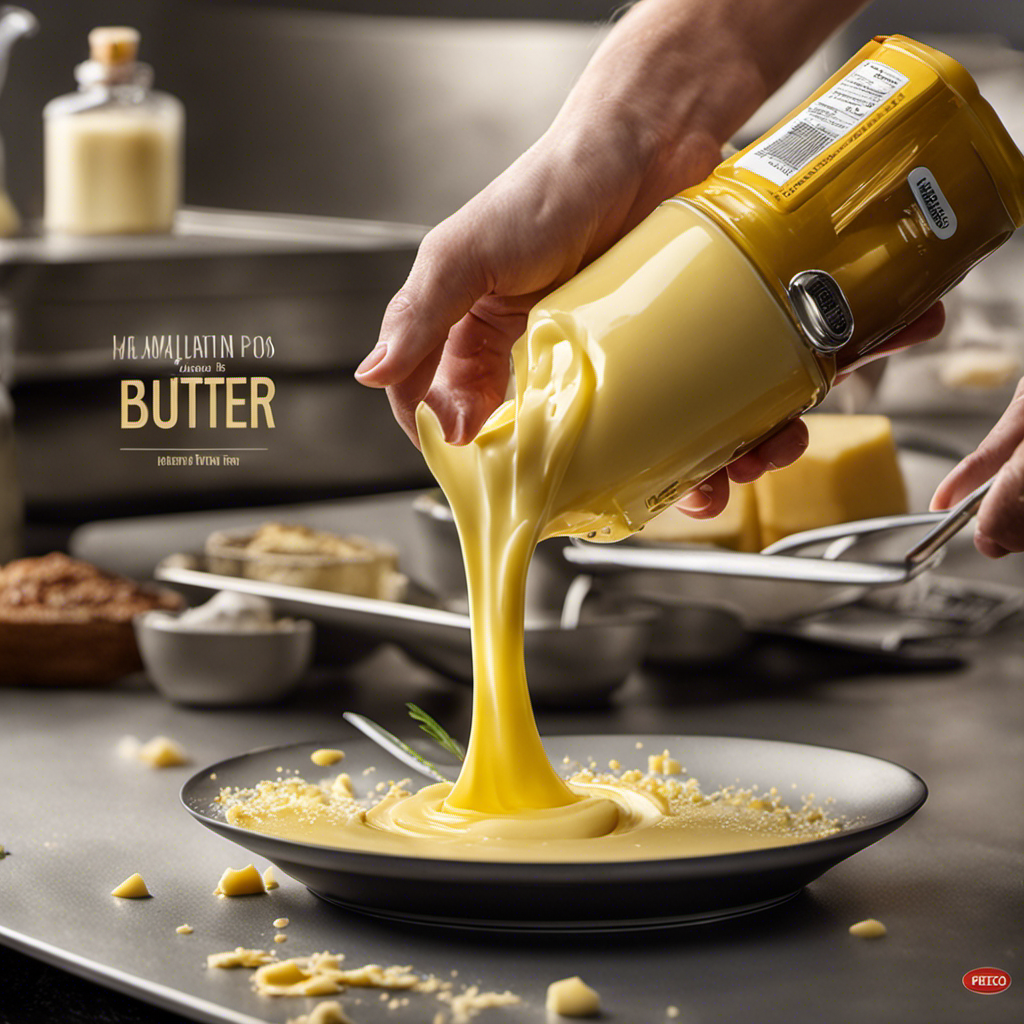
 Recipes & Culinary Uses2 months ago
Recipes & Culinary Uses2 months agoMake Your Own Homemade Spray Butter
-
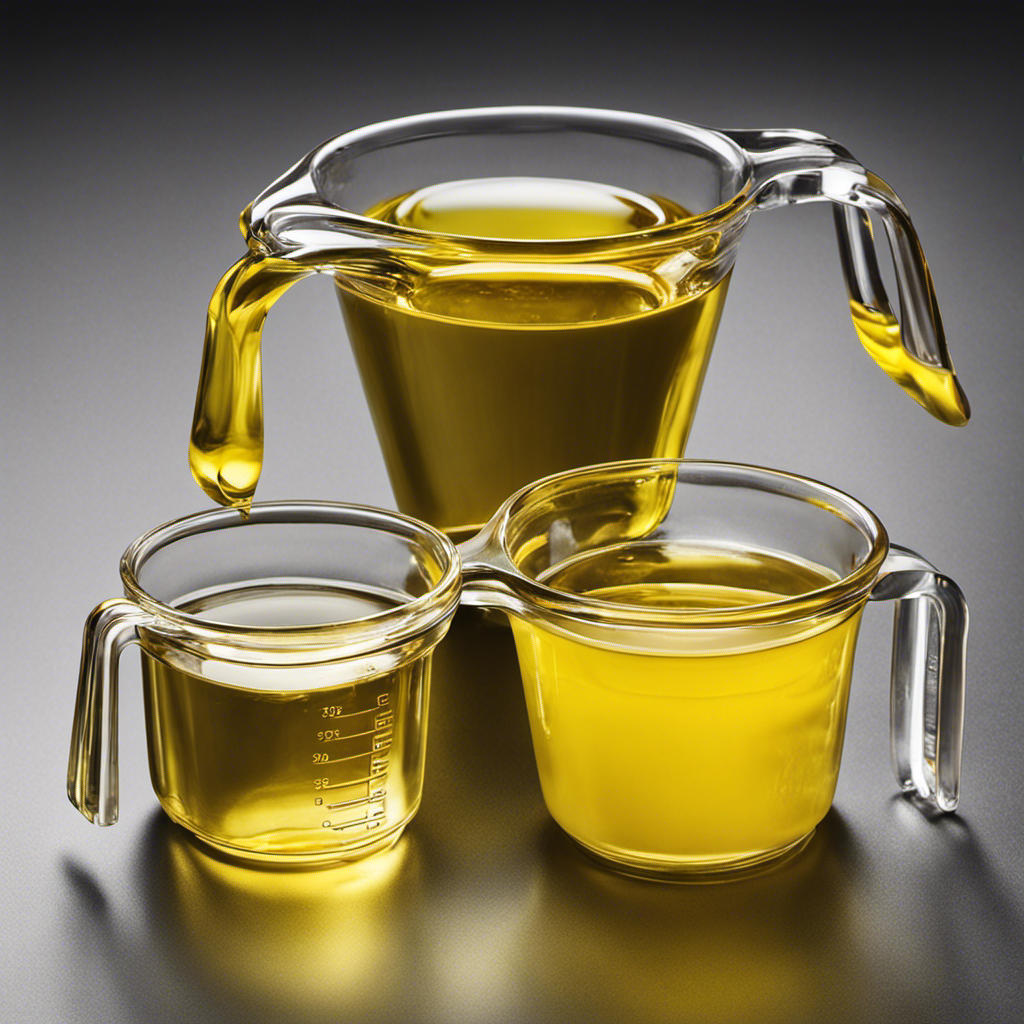
 Butter Tips and Tricks3 months ago
Butter Tips and Tricks3 months agoHow Much Butter to Use Instead of 1/3 Cup Oil
-
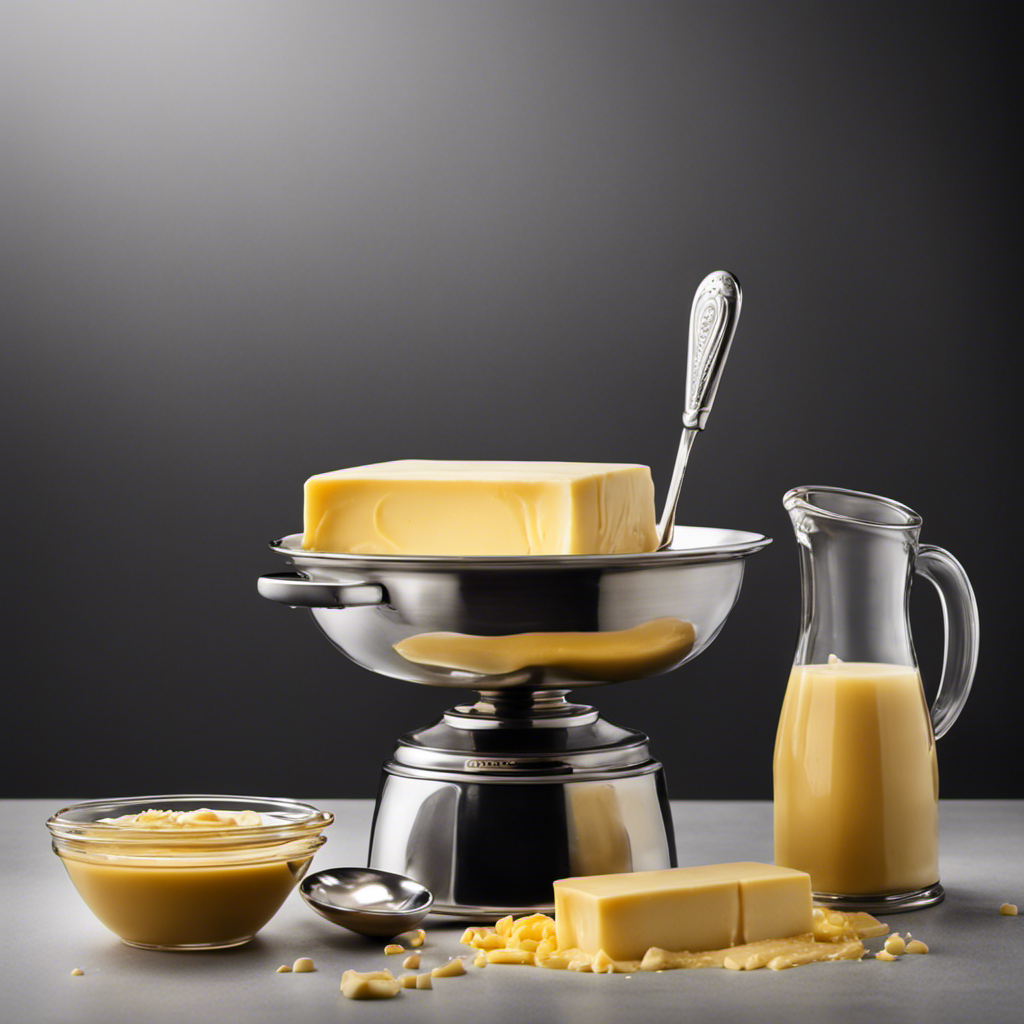
 Butter Tips and Tricks3 months ago
Butter Tips and Tricks3 months agoHow Many Calories Are in a Stick of Butter: A Comprehensive Guide
